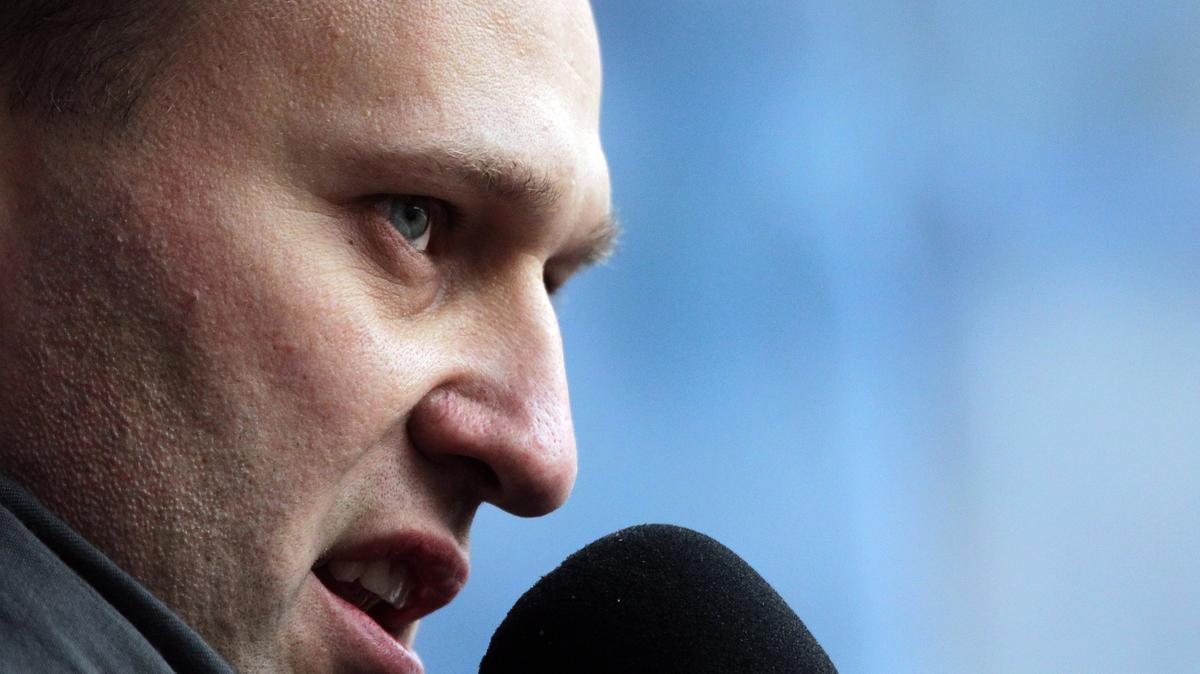No one who watched Alexey Navalny’s meteoric trajectory, from civic activist to opposition leader to the world’s most famous political prisoner, could avoid the question: how will this extraordinary saga end? Was Navalny destined to become Russia’s Nelson Mandela, a redemptive leader who guided his people from oppression to the promised land of democracy? Or was he doomed to be silenced by the henchmen of the despot whose rule he had challenged?
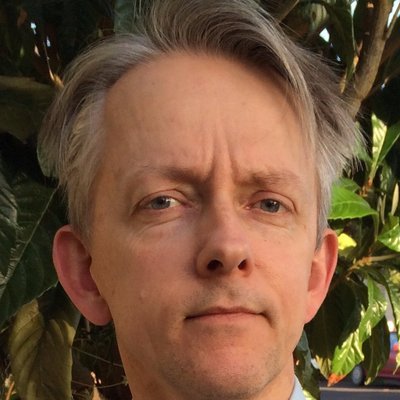
Robert Horvath
Senior lecturer, La Trobe University, Australia
We now know the answer. Before his death in an Arctic prison in February, Navalny also pondered his uncertain future. In the epilogue of his autobiography, Patriot, he recalls a poignant conversation with his wife, Yulia, in which both come to terms with the likelihood he will die in captivity.
Yet at the same time, he writes, “there is an inner voice that you can’t stifle: Come off it, the worst is never going to happen”.
These two possible destinies have left their mark on Navalny’s book. The first part is a candid, often funny and self-deprecatory narrative of his life, his activism and the making of his political career. This section is framed by his shocking 2020 poisoning with the nerve agent Novichok, his recuperation in Germany and his subsequent return to Russia.
The second part is a prison diary, interspersed with public statements and his “final words” at trials. As he is shunted between ever more hellish outposts of Putin’s penitentiary system, the text becomes more fragmented.
As a political prisoner, Navalny demonstrated extraordinary moral courage, speaking out against war while enduring mistreatment that can only be described as torture.
For many months, his sleep was disrupted by hourly inspections because he was an “escape risk”. Later, during a long stretch in a punishment cell, he endured the unrelenting, blood-curdling screams of his neighbour “the psycho”, a murderer used by the administration to torment Navalny.
What lends unity to his book is the unwavering consistency of Navalny’s resistance. As a pro-democracy activist, he instigated mass protests that repeatedly shook the foundations of Putin’s dictatorship. As an anti-corruption campaigner, he shone a spotlight on the kleptocratic rot that festered behind the patriotic posturing of Kremlin propagandists.
As a political prisoner, he demonstrated extraordinary moral courage, speaking out against war while enduring mistreatment that can only be described as torture.
One sign of Navalny’s enduring importance was the crowds of citizens who defied brutal repression to pay their respects at his funeral. Another is the unrelenting torrent of disinformation and vilification now directed against his memory.
The most common smear is that Navalny was not a freedom fighter, but a far-right nationalist, a Russian imperialist, and a supporter of Putin’s invasion of Ukraine. In 2021, Amnesty International designated Navalny a prisoner of conscience. In response, Kremlin troll farms spread accusations that became an article of faith for a vocal group of academics, commentators, and social media influencers.
Navalny’s autobiography is an important corrective to the disinformation. It shows how his activism was inspired not by nationalist grievances or far-right ideology, but by the lessons of growing up under totalitarianism and by his awareness as a young adult that the historic opportunity offered by the collapse of the Soviet regime was being squandered.
The most common smear is that Navalny was not a freedom fighter, but a far-right nationalist, a Russian imperialist.
It also illuminates aspects of his inner life overshadowed by his persona on social media. A voracious reader since childhood, Navalny has a lot to say about books. His prison diaries are scattered with reflections on literature ranging from Soviet-era rebels like Viktor Yerofeyev to European classics by authors such as Tolstoy, Maupassant and Dickens.
No less surprising was his unostentatious but strong Christian faith. Being a believer, he reflects, “makes it easier to live your life and, to an even greater extent, engage in opposition politics”.
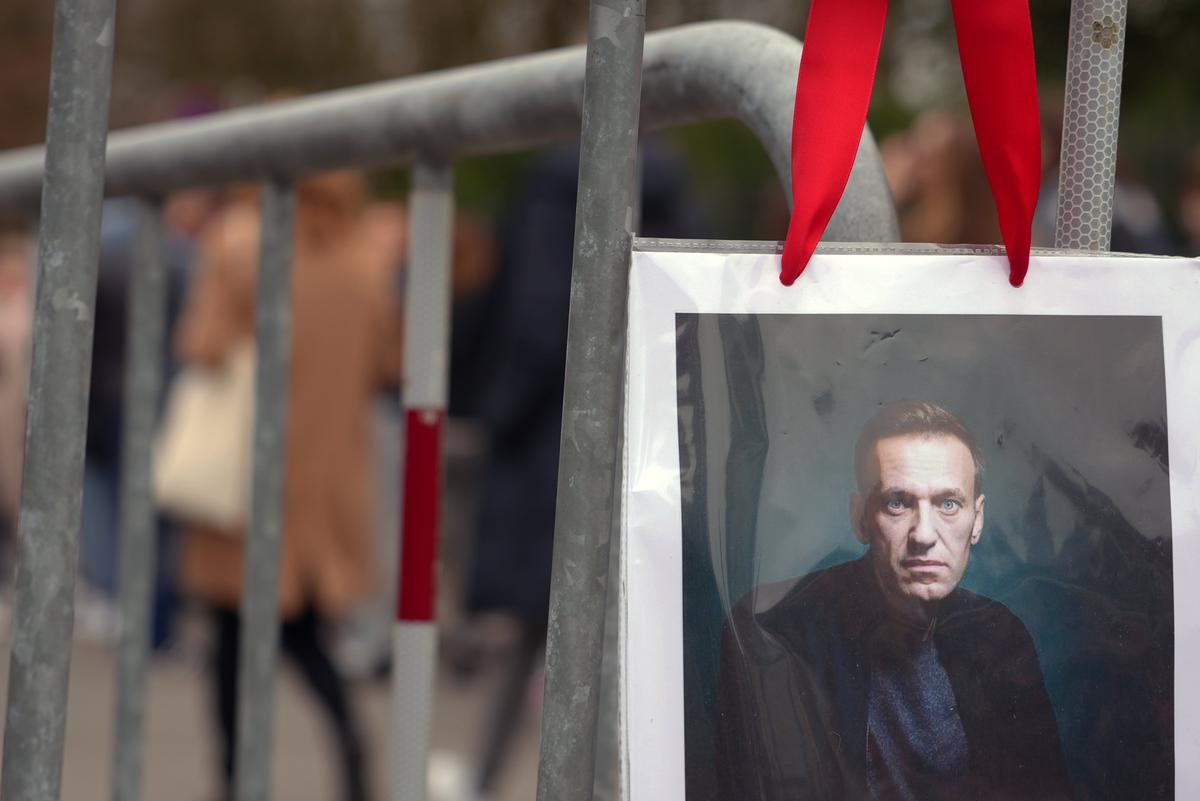
A portrait of Alexey Navalny in front of the Russian Embassy in Bern, Switzerland, 17 March 2024. Photo: EPA-EFE/JULIEN GRINDAT
From ‘paradise’ to lies
No childhood event left a greater impression on Navalny than the Chernobyl disaster. Half of his extended family was Ukrainian and he used to spend summers at his grandparents’ farm, remembered as “paradise on earth”, a place with “a stream and trees laden with cherries”. Here he was surrounded by crowds of relatives who were “the jolliest, most wonderful people”.
Unfortunately the village was near the Chernobyl Nuclear Power Plant. After the meltdown of the reactor on 26 April 1986, Navalny’s pastoral paradise became a radioactive exclusion zone. His relatives were forcibly relocated and scattered across Ukraine.
What most affected the young Navalny was the duplicity of the government’s response. Instead of warning about the disaster, officials tried to conceal it, with lies that exposed countless people to lethal radiation. Decades later, this lesson in the dangers of mendacious, unaccountable power shaped Navalny’s first impressions of Putin. “He never stops lying,” Navalny recalled, “just as in my childhood”.
Unlike Putin and most Russian imperialists, Navalny was indifferent to the breakup of the Soviet empire. What aroused his indignation was the hypocrisy of the “democratic reformers” of the 1990s. As a teenager, he had admired Boris Yeltsin, Russia’s first post-Soviet president, but he was slowly disillusioned by pervasive corruption and the rise of the oligarchs.
The turning point was Navalny’s attempt, as a university student, to import a cheap car from Germany in 1996. After three days spent lining up at a customs office, where everyone else was paying bribes to cut through red tape, he reached the head of the queue, only to be informed the office was closing because of a visit by Yeltsin’s press secretary.
Unlike Putin and most Russian imperialists, Navalny was indifferent to the breakup of the Soviet empire
That experience, he reflected, “proved to me something that I had been obstinately refusing to admit: Yeltsin’s reign was not about reform … he was just a sick old alcoholic with a bunch of cynical fraudsters around him going about their usual business of lining their pockets”.
Corruption and dictatorship
Navalny pointed to different life experiences of Yeltsin, an ex-communist party boss who had ruled the city of Yekaterinburg “like a typical Soviet petty tyrant” and the former dissidents who had led “velvet revolutions” in communist Europe.
Unlike Yeltsin, Poland’s Lech Wałęsa and the Czech Republic’s Václav Havel, “had stood their ground in the face of oppression and persecutions, and over many years had shown in action a genuine commitment to the words they proclaimed from the podium”.
What aroused his indignation was the hypocrisy of the “democratic reformers” of the 1990s
In his own life, Navalny would become an exemplar of that kind of defiance, speaking truth to power without regard for his own safety.
Incensed by the backroom deal that brought Putin, a corrupt underling with a KGB past, to power, Navalny joined the left-liberal Yabloko party so that “I would be able to tell my grandchildren, ‘I was against it from the outset’”. But instead of vigorous opposition to Russia’s backsliding, Yabloko’s leaders preferred backroom deals with Kremlin. The party was wiped out in the 2003 elections.
In response to growing media censorship, Navalny became co-organiser of a series of political debates in Moscow nightclubs. They were a tremendous success, until the authorities moved to shut them down. Bureaucratic harassment and raids by Kremlin-linked neo-Nazi gangs meant no venue was prepared to host them.
Navalny undertook another bold experiment, aiming to draw moderate Russian nationalists into an anti-Putin democratic coalition. “A serious political leader,” he explains, “cannot simply decide to turn their back on a huge number of his fellow citizens because he personally dislikes their views.” The record shows that Navalny sometimes mirrored these views, and sometimes challenged them.
In 2011, he exhorted the crowd at a nationalist rally to empathise with the plight of the inhabitants of the Muslim republics of the Russian Caucasus. It was not long before nationalist militants were complaining that Navalny had never been a nationalist, only a liberal who had used nationalists for his own ends.
One success of that strategy was the active participation of anti-Putin Russian nationalists in the mass protests against election fraud in 2011 and 2012. By then, Navalny’s defining cause had become the struggle against corruption.
Using his legal training and methods pioneered by Western shareholder activists, he tried to hold the management of state-owned oil and gas corporations accountable for the theft of billions in elaborate corruption schemes. He set out the results of his investigations on a Livejournal blog that quickly became one of the most popular and influential in the country.
In the decade that followed, he extended his reach using YouTube, Twitter, Instagram and even TikTok. What remained constant was his brilliant sense of humour and his unrelenting focus on the interconnection between corruption and dictatorship.
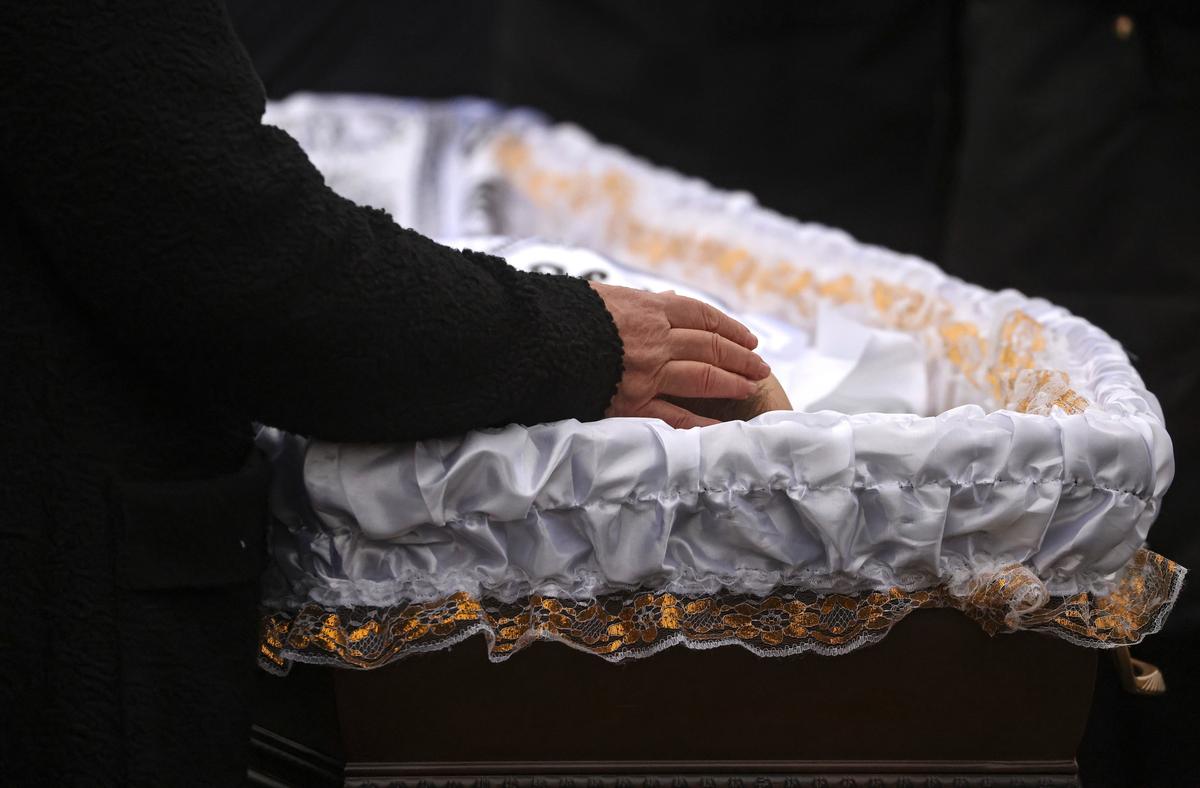
Alexey Navalny’s mother, Lyudmila Navalnaya, places her hand on her son's head at his funeral in Moscow, 1 March 2024. Photo: EPA-EFE/SERGEY ILNITSKY
A network of activists
Navalny’s account of his political campaigns offers valuable insights into the nature of civic activism in authoritarian conditions. To outside observers, he often appeared to be a brilliant, solitary hero locked in a lonely struggle with a brutal regime. The reality was more complicated.
As he repeatedly emphasises in his book, he was indebted to numerous helpers. Some were volunteers who responded to his appeals for specialist expertise. Others were activists who joined his Anti-Corruption Foundation or the branches of his presidential campaign.
By the time of his imprisonment, Navalny had created a nationwide network of committed activists who represented a serious challenge to the stability of Putin’s sham democracy.
What made Navalny such a threat to Putin’s rule was a succession of protest waves, when masses of ordinary citizens followed him onto the streets to demand change.
The most famous were the 2011-2012 mass protests against election fraud, Navalny’s Moscow mayoral campaign in 2013, the demonstrations inspired by his exposé of Prime Minister Dmitry Medvedev’s corruption in 2017, his presidential campaign of 2017 to 2018 and protests against the exclusion of opposition candidates from elections to the Moscow Duma, the city’s parliament, in 2019.
By the time of his imprisonment, Navalny had created a nationwide network of committed activists who represented a serious challenge to the stability of Putin’s sham democracy.
In increasingly authoritarian conditions, large numbers of ordinary Russians took real risks to express their rejection of Putin’s path.
What is harder to verify is Navalny’s account of the sources of the Putin regime’s aggression on the world stage. According to him, the invasion of Ukraine was driven not by the national interest or geopolitics but by the regime’s domestic needs. The goal was to redirect popular attention from economic stagnation and lawlessness to imperial hysteria.
As Navalny declared in court two days after Putin unleashed full-scale war in February 2022, “I consider [the war] immoral, fratricidal and criminal. It has been started by the Kremlin gang to make it easier for them to steal”.
Indeed, there is a case to be made that the war’s timing was linked to the Navalny crisis that followed his poisoning in August 2020. This crisis dealt a double blow to the regime’s legitimacy. It exposed Putin as a tyrant prepared to use banned chemical weapons to silence his most prominent political opponent and inspired Navalny’s team to produce Putin’s Palace, a two-hour documentary spotlighting the president’s personal corruption.
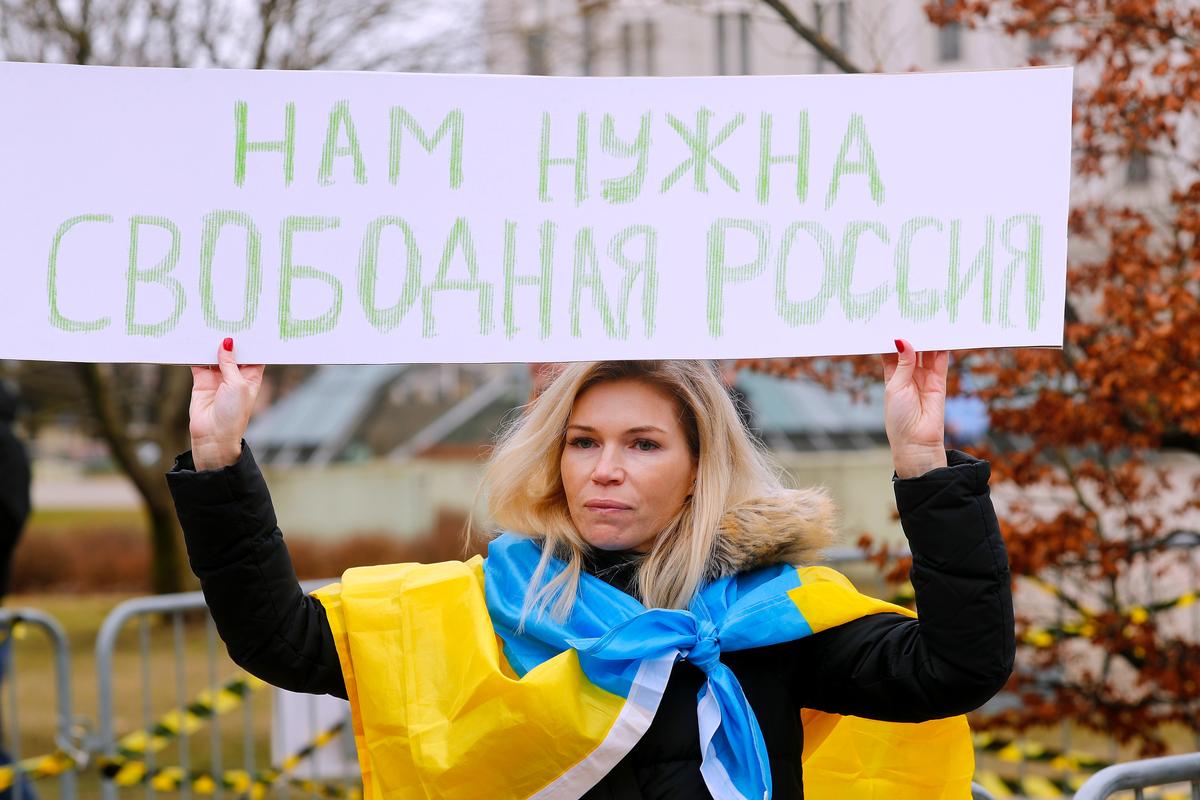
A protester outside the Russian Embassy in Riga, Latvia, holding a sign reading ”We need a free Russia“, 17 March 2024. Photo: EPA-EFE/TOMS KALNINS
Prison diary
Navalny’s prison diary, which makes up the final part of the autobiography, constitutes a kind of political testament. It puts on record his condemnation of Russia’s war against Ukraine. It sets out a vision of a postwar settlement, which includes war crimes trials, reparations, and the restoration of Ukraine’s 1991 borders.
And it offers a blueprint for a post-Putin Russia, where the concentration of power in Russia’s “super-presidential” system has been replaced by the checks and balances of a parliamentary democracy.
The diary is a harrowing account of daily life in a penitentiary system that has changed little since Soviet times.
The bureaucratised cruelty, the extreme cold, the inadequate food and medical care, the sleep deprivation, the long terms of solitary confinement, the challenges of dealing with informers, would all be familiar to readers of famous Soviet-era dissidents like Alexander Solzhenitsyn, Vladimir Bukovsky, Natan Sharansky and Anatoly Marchenko.
Like earlier chroniclers of the gulag, Navalny offers a kind of survival manual for future prisoners. He explains his mental strategies for sustaining a hunger strike, and the physical challenges of emerging from it.
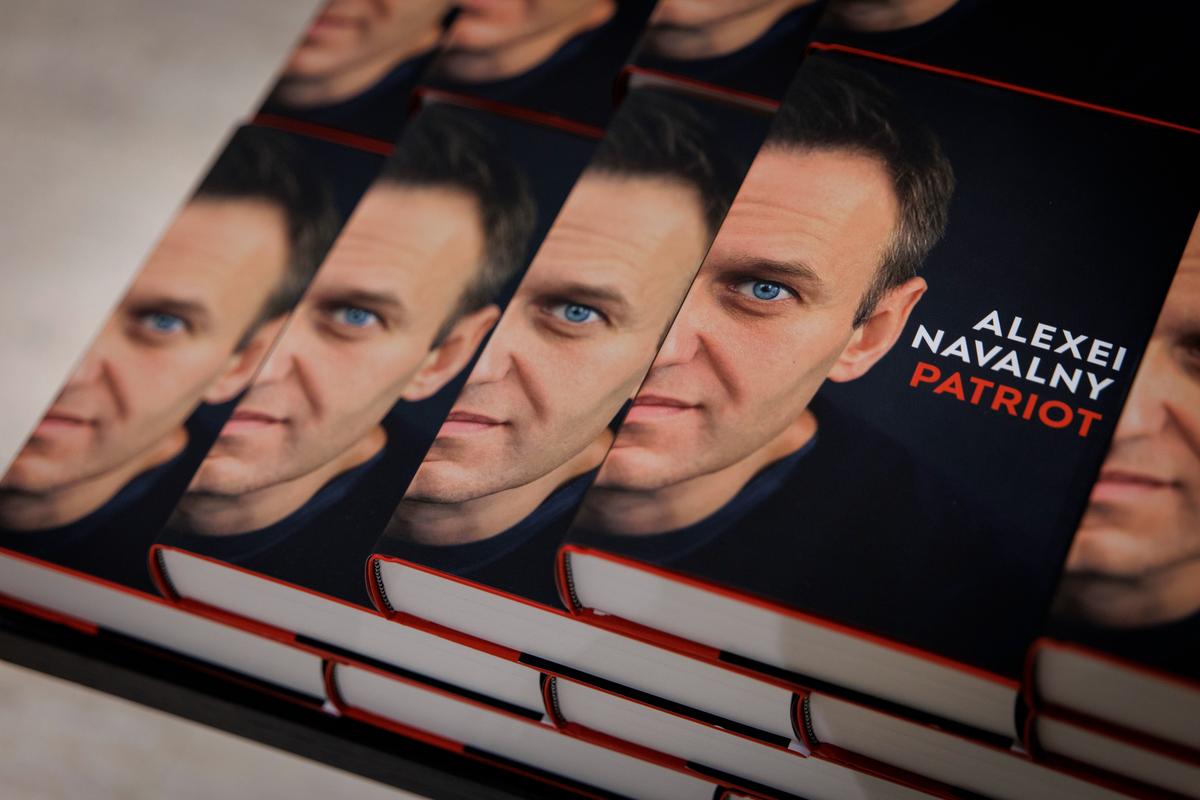
Patriot by Alexey Navalny on display at a bookstore in London, UK, 22 October 2024. Photo: EPA-EFE/TOLGA AKMEN
He mocks his persecutors, and manages to find humour or ironic possibilities in every attempt to punish and degrade him. When prosecutors lay yet another set of absurd charges, including terrorism and rehabilitating Nazism, Navalny derides this indictment with a sardonic boast referencing Sherlock Holmes’ nemesis Professor Moriarty:
“I am a genius of the underworld. Professor Moriarty is no match for me […] rarely has a criminal done as much on the outside as I have done behind bars.”
To keep up one’s morale in prison, Navalny recommends imagining the worst possible fate — in his case, disappearing from the lives of loved ones, missing children’s graduation ceremonies, never seeing grandchildren, dying alone in prison — and accepting it.
Like earlier chroniclers of the gulag, Navalny offers a kind of survival manual for future prisoners.
He recalls that the Soviet dissident and writer Anatoly Marchenko had died during a hunger strike in prison in 1986, and a couple of years later the Soviet Union was gone: “So even the worst possible scenario is not actually all that bad. I resigned myself and accept it.”
It is impossible to know whether the Putin regime is already entering the kind of terminal crisis that was unfolding in the Soviet Union in 1986. What is certain is that Navalny’s memory will be an inspiration for generations of Russians who seek to live in a freer, more democratic society, at peace with its own people and the world.
If a democracy emerges from the ashes of Putin’s dictatorship, Navalny will be celebrated as its prophet. His autobiography is destined to become the canonical text of Russia’s democratic tradition.
This article was first published by The Conversation. Views expressed in opinion pieces do not necessarily reflect the position of Novaya Gazeta Europe.
Join us in rebuilding Novaya Gazeta Europe
The Russian government has banned independent media. We were forced to leave our country in order to keep doing our job, telling our readers about what is going on Russia, Ukraine and Europe.
We will continue fighting against warfare and dictatorship. We believe that freedom of speech is the most efficient antidote against tyranny. Support us financially to help us fight for peace and freedom.
By clicking the Support button, you agree to the processing of your personal data.
To cancel a regular donation, please write to [email protected]
